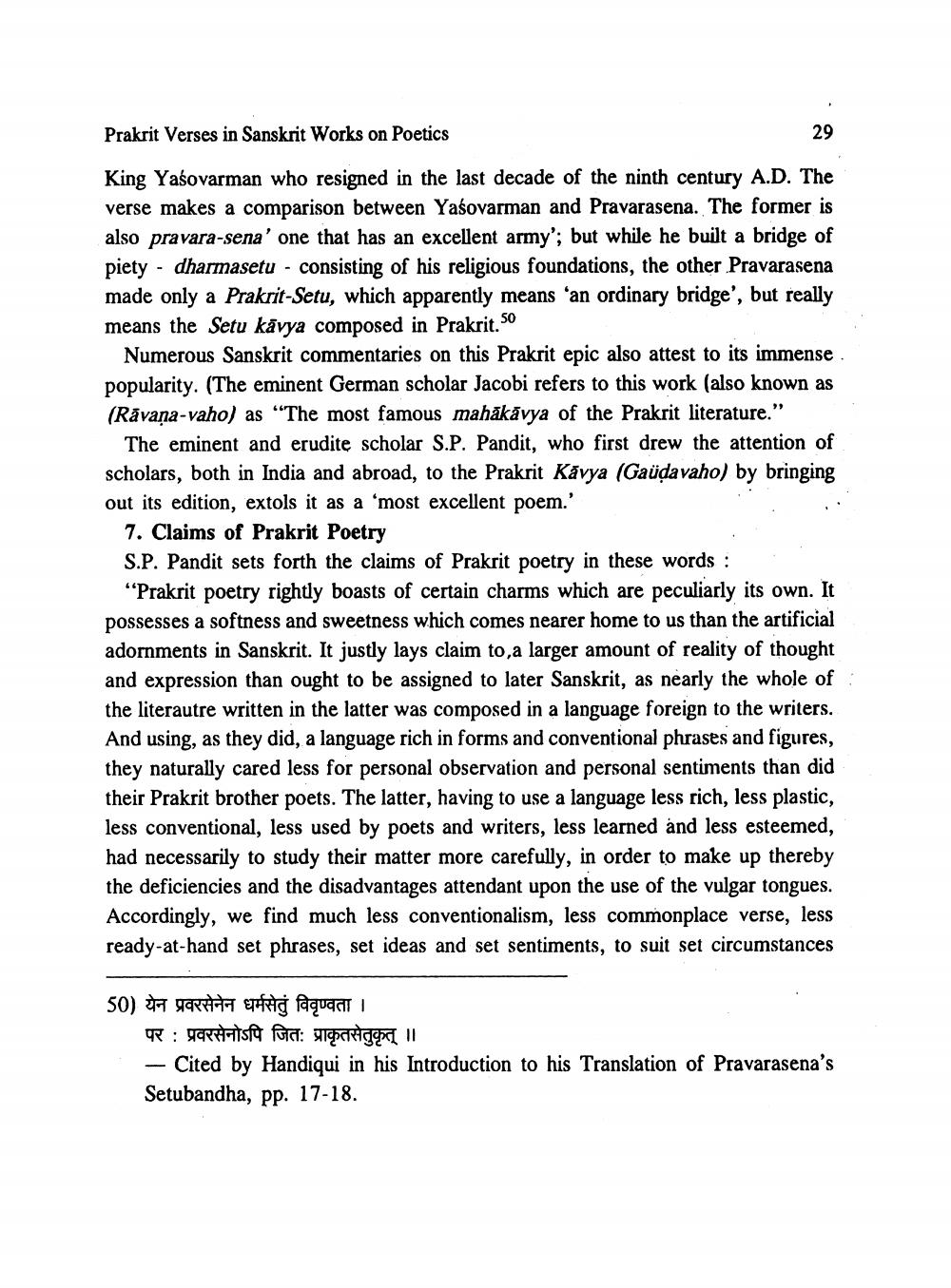________________
Prakrit Verses in Sanskrit Works on Poetics
King Yasovarman who resigned in the last decade of the ninth century A.D. The verse makes a comparison between Yaśovarman and Pravarasena. The former is also pravara-sena' one that has an excellent army'; but while he built a bridge of piety - dharmasetu - consisting of his religious foundations, the other Pravarasena made only a Prakrit-Setu, which apparently means 'an ordinary bridge', but really means the Setu kāvya composed in Prakrit. So
Numerous Sanskrit commentaries on this Prakrit epic also attest to its immense popularity. (The eminent German scholar Jacobi refers to this work (also known as (Rāvana-vaho) as “The most famous mahākāvya of the Prakrit literature."
The eminent and erudite scholar S.P. Pandit, who first drew the attention of scholars, both in India and abroad, to the Prakrit Kävya (Gaüdavaho) by bringing out its edition, extols it as a 'most excellent poem.'
7. Claims of Prakrit Poetry S.P. Pandit sets forth the claims of Prakrit poetry in these words : 1
"'Prakrit poetry rightly boasts of certain charms which are peculiarly its own. It possesses a softness and sweetness which comes nearer home to us than the artificial adornments in Sanskrit. It justly lays claim to a larger amount of reality of thought and expression than ought to be assigned to later Sanskrit, as nearly the whole of the literautre written in the latter was composed in a language foreign to the writers. And using, as they did, a language rich in forms and conventional phrases and figures, they naturally cared less for personal observation and personal sentiments than did their Prakrit brother poets. The latter, having to use a language less rich, less plastic, less conventional, less used by poets and writers, less learned and less esteemed, had necessarily to study their matter more carefully, in order to make up thereby the deficiencies and the disadvantages attendant upon the use of the vulgar tongues. Accordingly, we find much less conventionalism, less commonplace verse, less ready-at-hand set phrases, set ideas and set sentiments, to suit set circumstances
50) to get to Ettig faquaat i
पर : प्रवरसेनोऽपि जित: प्राकृतसेतुकृत् ।। - Cited by Handiqui in his Introduction to his Translation of Pravarasena's Setubandha, pp. 17-18.




